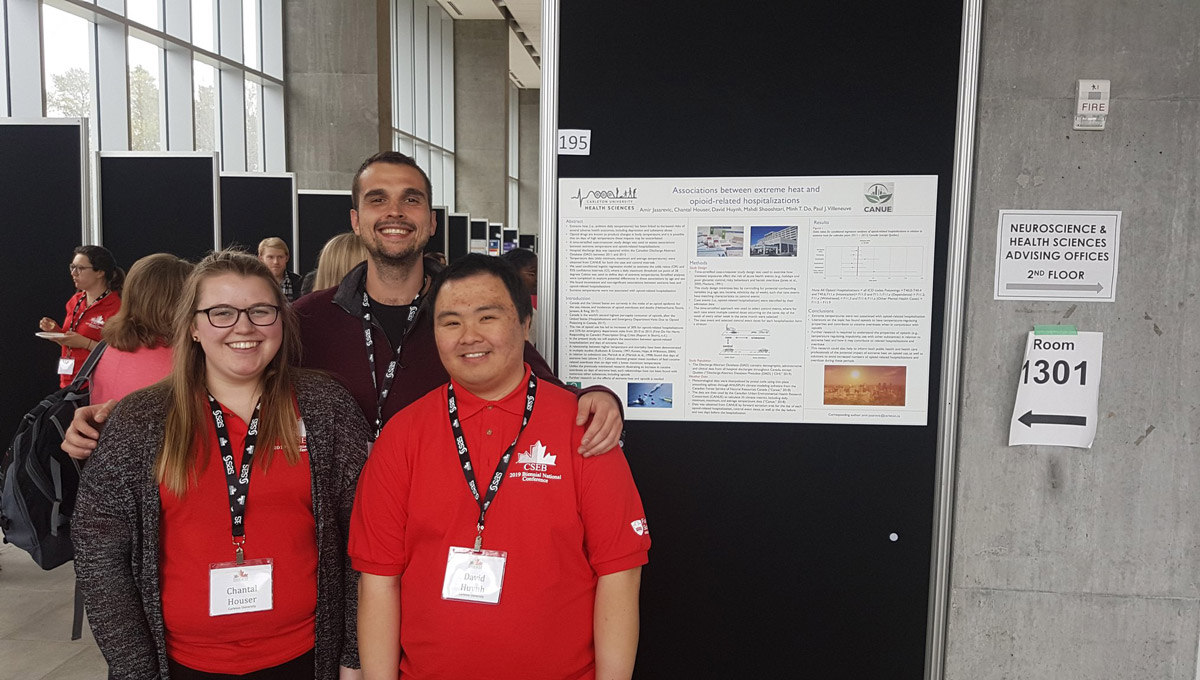Research by Carleton Master of Science students shows that opioid hospitalizations decrease on statutory holidays
Holidays are a time for family and friends. They can heighten our emotions, both good and bad. Feelings of isolation and stress can become that much more acute on holidays, and opioid use is often tied to these types of distress.
Carleton graduate students Chantal Houser, David Huynh and Amir Jasarevic wondered if holidays would have an impact on hospitalizations related to opioid use. These events fluctuate according to seasonal and day of the week patterns, but it wasn’t known whether statutory holidays had an impact.

In new research published in the Canadian Journal of Public Health, the graduates of Carleton’s Master of Science in Health: Science Technology and Policy program have shown that opioid-related hospitalizations actually decrease on statutory holidays in Canada.
“We knew that with substances like alcohol or methamphetamine, the number of hospitalizations on statutory holidays can vary,” say Houser, Huynh, and Jasarevic, who conducted the research with guidance from Dr. Paul Villeneuve, a Professor in the School of Mathematics and Statistics who holds an appointment in the Department of Health Sciences.
“It depends on the substance, and also the type of holiday. Some holidays are more oriented toward social gatherings, like Canada Day or New Year’s. Other holidays are more likely to be spent with family, like Christmas. But we couldn’t find any research on how statutory holidays affected opioid hospitalizations, so we decided to explore that.”
The Public Health Agency of Canada offered the researchers access to the Canadian Discharge Abstract Database, which includes anonymized data on hospitalizations for every province except Quebec. Working with Dr. Matthew Young, a Senior Research and Policy Analyst of the Canadian Centre on Substance Use and Addiction, Houser, Huynh, and Jasarevic examined data on nearly 60,000 opioid-related hospitalizations that occurred between 2011 and 2017, and found that this type of event was 12 per cent less likely to occur on holidays.
“In the Health: Science Technology and Policy program, we bring together groups of students to work together in an interdisciplinary way,” says Villeneuve,

“People will take on different roles in these group projects. It mimics real world situations where some people might have more experience in statistics, and someone else might have expertise in an area like health policy.”
Houser, Huynh, and Jasarevic found that there was a reduction in hospitalizations on statutuory holidays, and that it happened for all different types of holiday, Knowing this could help hospitals ensure that they have assigned staff to the places they will be needed the most. Other types of care – such as emergency medicine – can be in higher demand on holidays.
Still, the researchers caution that their work examined only hospitalization data, and that these are especially severe. Other types of events related to opioid use would not necessarily be expected to follow a similar pattern.
“Hospitalizations are not the whole picture,” say Houser, Huynh and Jasarevic.
“This research does not cover things like emergency room visits or treatment delivered by paramedics.”